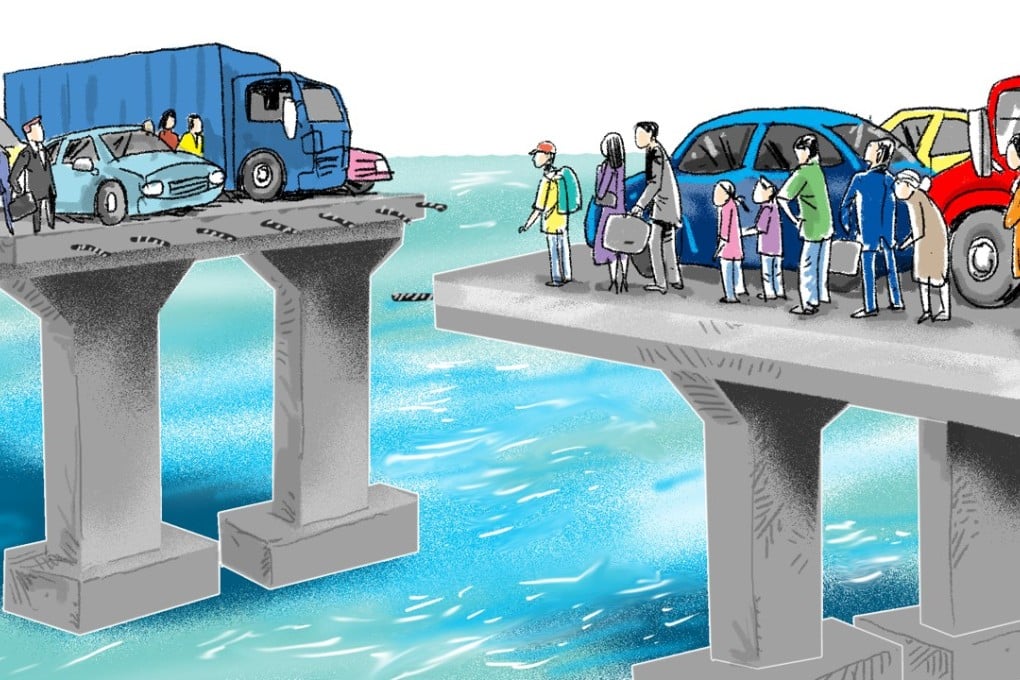Advertisement
Hong Kong-Zhuhai-Macau bridge can shorten travel times and extend opportunities
Ken Chu says the long-talked-about bridge is no longer about boosting manufacturing for Hong Kong industry, but will instead bring many benefits by cutting commute times and opening up new options for travel and work
Reading Time:4 minutes
Why you can trust SCMP

The idea of building a bridge connecting Hong Kong to Zhuhai or Macau has been around for decades. In the 1980s, Gordon Wu Ying-sheun of Hopewell Holdings and the then mayor of Zhuhai proposed the Lingdingyang bridge linking their two cities, but the idea did not come to fruition.
In the late 1990s and early 2000s, Beijing and Hong Kong looked into ways of boosting connectivity and shortening travel time between the special administrative region and the western part of the Pearl River Delta, and Hong Kong’s businessmen and industrialists were supportive, hoping to extend production bases to the western delta and boost Hong Kong’s container port. As a result, construction of Hong Kong-Zhuhai-Macau bridge commenced in 2009.
But that was then. The current economic environment and landscape are entirely different from when the bridge was on the drawing boards. At the very least, Hong Kong no longer needs land in the western delta for factories, because our manufacturing sector has languished for so long.
Advertisement
One of the longest bridge-cum-tunnel sea crossings in the world, the 36.3km Hong Kong-Zhuhai-Macau bridge spans the estuary of Pearl River with two boundary crossing facilities on two artificial islands, one off Chek Lap Kok and the other at Gongbei, Zhuhai. However, since the beginning of construction, the bridge has been saddled with one problem after another – cost overruns, project delays, destruction of the habitats of Chinese white dolphins and attempts by external consulting company staff to falsify concrete safety test results.
Regardless, the bridge is here to stay and there have been reports that it will open this year. In light of this, shouldn’t we re-examine the role the bridge can play in the long-term interests of Hong Kong and how we can better leverage it to our advantage?
The Hong Kong-Zhuhai-Macau bridge lights up for 2018
Advertisement
Select Voice
Choose your listening speed
Get through articles 2x faster
1.25x
250 WPM
Slow
Average
Fast
1.25x